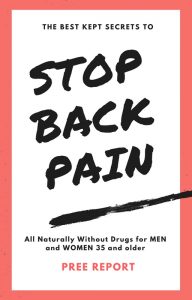Let’s face it. We all have stress in our lives. We are increasingly bombarded with decisions and every minute seems to be filled with obligations. All this can lead to unhealthy levels of stress. When our bodies are stressed there is a hormonal response. One of the main stress hormones is called cortisol. In fact, cortisol is often used in studies as a marker to measure stress levels. Cortisol is essentially a hormone that our bodies use to respond to an acutely stressful (fight or flight) situations. This is a very effective way to prioritize our bodies for a short term stressful situation but when we are exposed to cortisol chronically it has negative effects.
Cortisol affects our bodies in several different ways. The first way is that it causes our liver to create glucose which can lead to elevated blood sugar levels and eventually insulin-resistant diabetes if the hormone is at unhealthy levels. Cortisol has been linked to weight gain and increased mid-section obesity. Also there is an effect on your immune system which can lead to susceptibility to colds, food allergy development and gastrointestinal problems. Other problems that have been linked to cortisol levels include fertility problems, cardiovascular risks and cognitive ability.
Ways to manage stress levels:
1: Sleep- A lack of sleep is tied to increased stress hormones. Some helpful tips for improving your sleeping is to turn off electronics 30 minutes before bed, sleep in a darkened room and keep the room temperature relatively cool.
2: Diet- Eat a diet that is low in inflammatory food. Foods that can lead to inflammation include sugary food, alcohol, refined grains, and dairy.
3: Caffeine- Caffeine has been shown to increase the cortisol response to stress. Finding alternatives for your caffeinated drinks will help for a hormonal standpoint and also improve your sleep.
4: Exercise- our bodies react to exercise hormonally in several ways. The intensity of the exercise is what dictates how we respond. If we exercise too intensely the body will actually produce stress hormones if the intensity is more manageable then the body responds with hormones that have a positive effect.
What I see in the clinic is pain and stress are closely related. If you are experiencing a great deal of stress then your pain response is also greater. The reverse is also true, if you are experiencing a great deal of pain than you are likely dealing with your stress poorly. The exciting situation is that if we can find an exercise program that does not provoke pain and is at the right intensity we have an opportunity to drastically alter your stress levels. I think this is where a set of watchful eyes can help. Finding creative ways and engaging ways to exercise at the right intensity level is the trick.
Often physical therapist can be extremely helpful in finding you an exercise program that is personalized to you and will help manage your stress. If you are interested in an exercise program to help manage your stress contact us at Siskiyou Physical Therapy.



